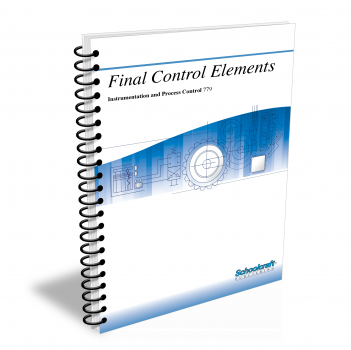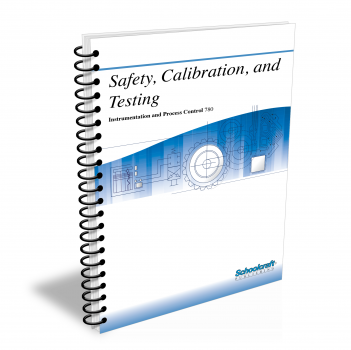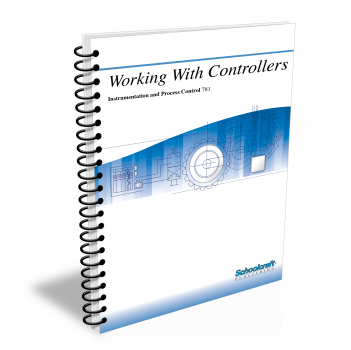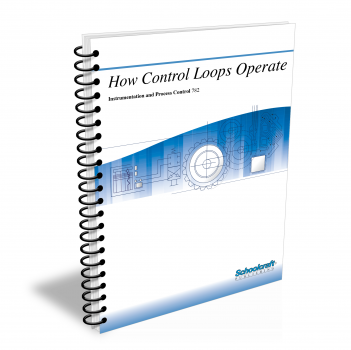Computers in Process Control
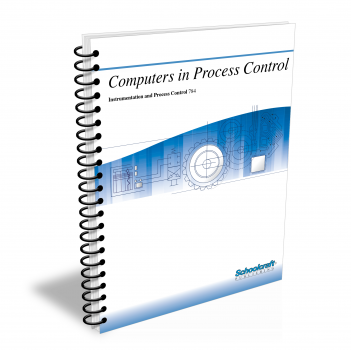
Course Number: 784
The Computers in Process Control textbook describes the evolution of today's process control computer systems. It compares smart components to older conventional system devices. It covers the architecture (hardware and software), configuration, and operation of distributed control systems in depth by using as an example a typical DCS controlling an ice cream plant. The textbook defines common terms used in today's integrated plant and discusses the integration of discrete and continuous processes with plant business functions.
Does your curriculum require additional topics not included in this textbook? Build a customized version of the Computers in Process Control textbook below.
Recommended Contact Hours – 8
Preview a Chapter
Available Supporting Material
- Table of Contents
- Exam Copies
- Suggested Titles
Table of Contents
Chapter 1: History and Overview
Topics: SCADA; Microprocessor-based instruments; Distributed control; Personal computers; PLCs; Artificial intelligence; Expert systems; Fuzzy logic; Integrated control systems
Learning Objectives:
- Discuss the history of the application of computers to continuous and batch process control.
- Describe the function of an RTU in a SCADA system.
- Describe the development of distributed control systems from microprocessor-based instruments, including programmable logic controllers.
- Compare the hardware, operating systems, software, and applications of a PC with a household VCR.
- Compare the concepts of artificial intelligence, expert systems, and fuzzy and crisp logic.
Chapter 2: Small Computers in Process Control
Topics: Smart sensors, transmitters, signal conditioners, and final elements; Single and multiloop controllers; Networks; PLCs
Learning Objectives:
- Describe the various kinds of small computers used in process control.
- Explain how a "smart" device differs from its conventional counterpart.
- Discuss the similarities between microprocessor-based instruments and conventional instruments and list several advantages of microprocessor-based instruments.
- Describe the roles of two kinds of PCs (programmable controllers and personal computers) in process control.
Chapter 3: DCS Architecture
Topics: Distributed control system hardware and software; Workstations; Remote processing units; Host/guest computers; Transmission systems; What is Fieldbus?
Learning Objectives:
- Describe the elements of a typical workstation.
- Discuss the functions of remote processing units and host/guest computers in DCSs.
- Compare star, hub, and ring network topologies and token-passing, contention, and polling protocols.
- Explain why today's DCS users must be more computer literate than previously.
- Discuss ways of calculating and ensuring DCS reliability.
- Describe the functions of six typical DCS peripherals.
- List advantages and disadvantages of all-digital process control systems, such as fieldbus.
Chapter 4: DCS Configuration and Operation
Topics: Configuring distributed control systems; Hierarchical displays; Configuring operating and auxiliary displays; Operation
Learning Objectives:
- Describe the basics of a simple configuration process.
- Discuss the preparatory steps required for configuration.
- Describe a typical hierarchical display arrangement and discuss the progression of the configuration process from level to level.
- Discuss the automatic configuration of auxiliary displays.
- Discuss the DCS functions for which the operator is and is not responsible.
Chapter 5: Systems and Application Integration
Topics: Total business operation; Discrete processes and manufacturing systems; Flexible manufacturing; Materials control; Statistical process control�
Learning Objectives:
- Discuss the development of integration in industry.
- Describe how continuous and discrete processes fit into the concept of total business integration.
- Describe the purposes of MAP and OSI.
- Discuss the functions of CAD, CADD, CAE, CAM, and cell control in discrete processes.
- Discuss the importance of FMS, MRP, JIT, and MMS in today's integrated industrial plant.
- Explain how SPC ensures quality control in open-loop processes.
- Discuss the advantages of integrating batch, continuous, and discrete processes throughout a plant.
Request Exam Copies
Exam Copies
Ready to see a copy of our textbooks? After selecting which textbooks you’d like to review for your course, you can submit your request by either logging in or creating an account so we know where to ship your exam copies. A representative from Schoolcraft will contact you to confirm and finish processing your request.
Exam copies are always free and yours to keep.
Selected Exam Copies
none selected
* Maximum of five copies can be ordered
